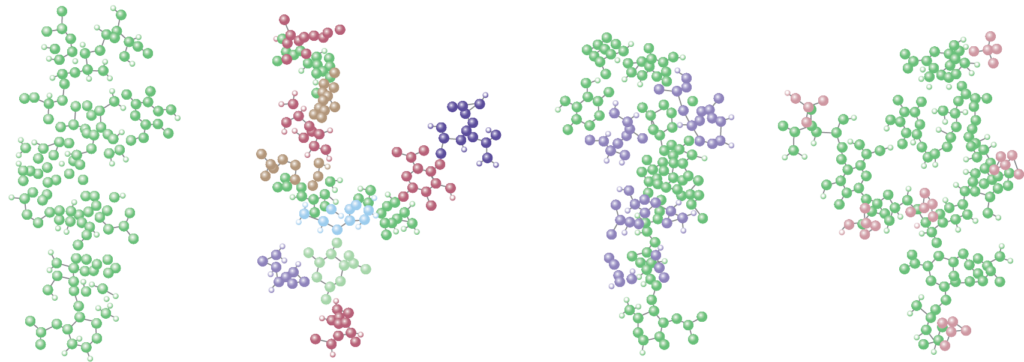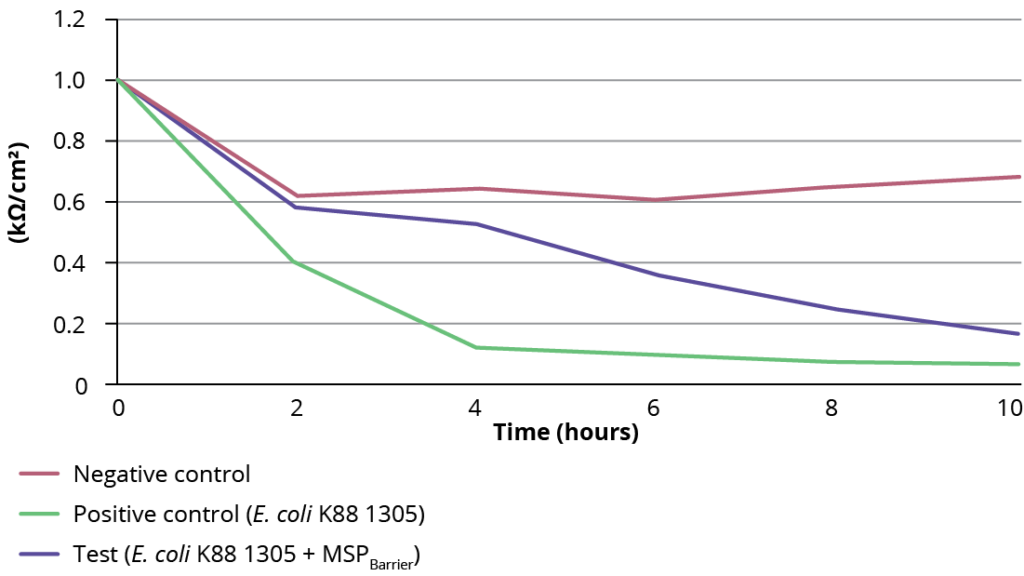Role of macroalgal extracts in intestinal dynamics

Reducing intestinal inflammation competently by modulating the immune response and promoting gut integrity through targeted feed additives has become increasingly important in modern and sustainable animal production systems. Macroalgal extracts are essential tools which offer several key benefits, particularly improving animal intestinal and overall health, and production efficiency thanks to its immunomodulatory and gut barrier promoting activities.
WORLD OF MICROBES SPECIAL 2024 – read all articles
The components that define gut barrier and immune function are closely related, as well as the interaction with the host microbiota. When the gut lining is compromised, it can lead to an increased permeability, allowing harmful substances to enter the blood circulation and triggering immune activation and ultimately systemic inflammation and dysbiosis. The challenge in the industry is to find solutions effectively capable of supporting gut health through immunomodulation and barrier function enhancement, maintaining a diverse microbiota; and thus, ensure good performance without relying on antibiotics. An increasing number of scientific evidence and results from trials in commercial conditions have indicated the potential of in-feed marine macroalgal polysaccharides as reliable tools for gut integrity promotion and immunomodulation.
Figure 1 – Macroalgal polysaccharides’ structure responsible of their bioactivities. From left to right: branched structure, sugar unit diversity, presence of rare sugars and presence of sulfate groups.

Unique structural features of marine macroalgal polysaccharides
Parietal polysaccharides of seaweeds present structural complexity and a unique composition that confer them high reactivity and explain their biological properties when used in animals. The complexity and biological reactivity of seaweed polysaccharides stem from the nature of the sugar units, which are diverse and sometimes rare, such as uronic acids, xylose and rhamnose; the variety of glycosidic bonds leading to their branched structure and the presence of sulphate groups (Figure 1). Furthermore, their polyanionic structure and solubility increase their reactivity and enable their recognition by host cells. Sulphated polysaccharides are characteristic of macroalgae (they are not found in terrestrial plants, nor freshwater microalgae nor yeast cell walls). Olmix Group marine bioactive ingredient extraction know-how has led to the development of an in-feed product, Algimun, which is based on the combination of 2 bioactive macroalgal extracts: MSPBarrier, a red algal extract, which enhances the gut barrier function; and MSPImmunity, a green algal extract, that modulates innate and adaptive immune responses. Algimun bioactive molecules proved to be resistant to feed processing, especially to heat treatment and extrusion.
Figure 2 – TEER of IPEC-1 cell line incubated with E. coli K88 1305 and/or MSPBarrier (kΩ/cm²).

Multifaceted approach to gut health
The ability of the red algal extract to reinforce gut integrity in the presence of a pathogenic strain of Escherichia coli was assessed in an assay (INRAE), where IPEC-1 cell lines were incubated in the culture medium only (negative control), with E. coli K88 1305 (1.35×108 CFU/mL) (positive control) or with E. coli K88 1305 and MSPBarrier (test). Results showed that the transepithelial electrical resistance (TEER), gut permeability marker, was stable in the negative control (non-infected) in the first 10 hours of monitoring, while it rapidly decreased (within 4 hours) in the positive control (infected). When the IPEC-1 cell line was in contact with MSPBarrier prior to being inoculated with E. coli K88 1305, TEER was maintained at a higher level than in the positive control in the first 10 hours post-infection (Figure 2). In an animal experimental model triggering intestinal inflammation (INSERM), MSPBarrier reduced the paracellular passage of FITC-dextran (gut permeability biomarker). Other studies have proven, in vitro, that the red algal extract upregulates the expression of genes encoding transmembrane and scaffolding proteins which are required for an optimal functioning of the tight junction complexes; and the expression of genes encoding for major mucus proteins which prevents pathogen attachment and colonisation of the gut epithelium (IBD). Recently, in a necrotic enteritis challenge trial in broilers, Algimun has proven to promote gut integrity by enhancing gene expression of tight junction proteins (CLDN1, CLDN3, and ZO1) in jejunum, reducing intestinal lesion scores and improving FCR compared to control group. These findings show how an enhanced gut barrier function can counteract the effects of pathogenic bacteria.
Further research has shown that MSPImmunity has the capacity to modulate the synthesis of immune mediators involved in the activation of the innate host defence and regulation of the adaptive immune response, while inducing immune tolerance thanks to its anti-inflammatory properties. Several scientific studies further confirmed the immunomodulating properties of MSPImmunity, namely by increasing mucosal defence components such as immunoglobulin A, which is essential for pathogenic bacteria control in the gut. The immune response of broilers in a necrotic enteritis co-infection model was assessed by measuring serum calprotectin concentration (biomarker of gut inflammation) and by gene expression of pro- and anti-inflammatory immune mediators in intestinal samples. Broilers receiving the in-feed product presented lower serum calprotectin concentration when compared to control group. In addition, broilers in the Algimun group showed an upregulation of IL1β and IL12B, which indicate an improved cell-mediated immune response, and IL10, which prevents the adverse effects of extra pro-inflammatory cells, resolves inflammation and restores mucosal homeostasis. These results indicate an attenuated intestinal inflammation in broilers within the in-feed product group that have been exposed to a severe challenge.
Reinforcing gut integrity
Dietary marine algae extracts can be used as a natural alternative in-feed strategy to mitigate and/or avoid the negative outcomes associated with loss of epithelial barrier function, including inappropriate immune activation and systemic inflammation. These macroalgal extracts establish direct interactions with host cells and reinforce gut integrity and modulate the immune response leading to a more stable intestinal ecosystem, and an improved health and growth performance. This support on animal resilience represents a valuable tool to move towards the reduction of antibiotic use.
References available on request. The For Feed Team can be reached at animalcare.pm@olmix.com.
Join 13,000+ subscribers
Subscribe to our newsletter to stay updated about all the need-to-know content in the dairy sector, two times a week.






